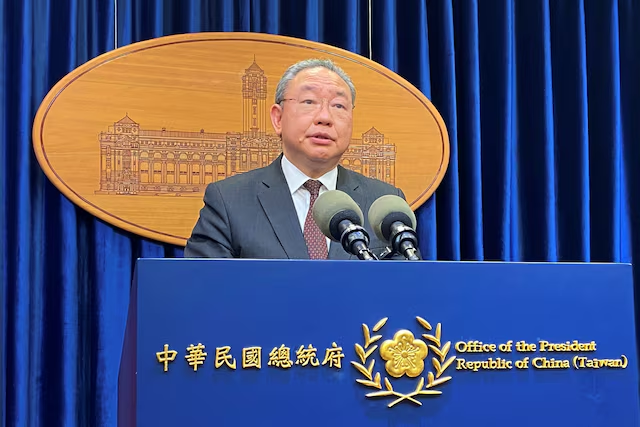Taiwan’s top representative in the United States, Alexander Yui, met privately in Washington earlier this month with a group of intelligence advisers to former President Donald Trump, sources told Reuters. The meeting involved the President’s Intelligence Advisory Board (PIAB), which has gained increasing influence in Trump’s White House during his second term.
The meeting was described by sources as one of the highest-level Taiwan-U.S. contacts under Trump 2.0. PIAB, historically a low-profile advisory body, has become more prominent amid recent mass firings of other national security officials. The White House characterized the gathering as informal and unsanctioned, arranged by a mutual contact rather than as an official PIAB session.
Several PIAB members are highly influential in Trump’s circle, including:
- Devin Nunes, board chair and former Congressman, CEO of Trump Media & Technology Group
- Robert O’Brien, former National Security Advisor
- Amaryllis Fox, Deputy Director of National Intelligence
Experts note that the current PIAB includes a number of experienced professionals, giving the board a more credible and active role than in Trump’s first term. While the specific topics discussed during the Yui meeting remain undisclosed, sources confirm that Nunes and O’Brien attended.
Taiwan does not maintain formal diplomatic ties with the U.S., making such meetings sensitive. Meanwhile, high-level engagement with Taiwan coincides with Trump’s planned phone call with Chinese President Xi Jinping, reportedly covering issues including TikTok’s ownership transition to U.S. control.
The PIAB’s rising influence contrasts with other intelligence agencies, such as the National Security Council, NSA, and Defense Intelligence Agency, which have faced recent abrupt personnel changes. Despite being unpaid and often living outside Washington, PIAB members hold security clearances and increasingly serve as points of contact for foreign diplomats seeking information on U.S. national security positions.







